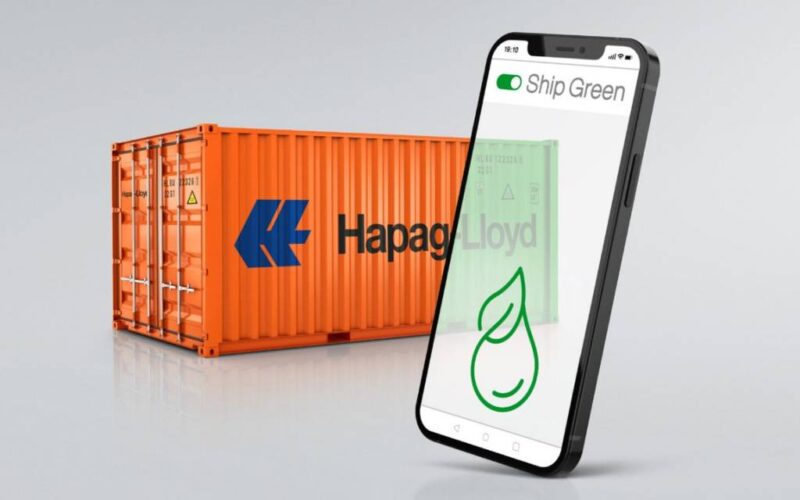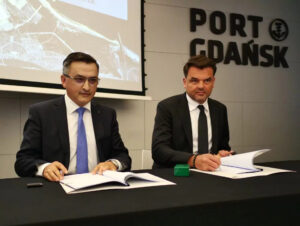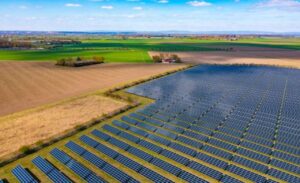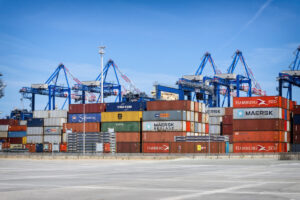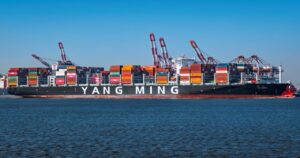Hapag-Lloyd has entered into a partnership with DB Schenker to use a waste- and residue-based biofuel to cut emissions during container shipping.
Following the introduction of ‘Ship Green’ in May, the renowned logistics provider has chosen Hapag-Lloyd’s sustainable transport solution as part of its sustainability ambitions.
DB Schenker intends to claim roughly 3,000 metric tonnes of avoided carbon dioxide equivalent (CO2e) emissions by the end of 2023. This assumes a minimum of 1,000 tonnes of pure biofuel.
READ: Hapag-Lloyd launches climate-friendly transport solution
Henrik Schilling, Managing Director Global Commercial Development at Hapag-Lloyd, said: “We are excited about this new partnership with DB Schenker as we share the common goal of making logistics more sustainable.
“Collaborations like these set a clear signal in the industry and are another example of a step-by-step approach to further decarbonise supply chains”.
Thorsten Meincke, Global Board Member for Air & Ocean Freight at DB Schenker, added: “I am very pleased that together with Hapag-Lloyd we are setting another example for sustainability in our industry.
“This partnership further enlarges our global biofuel offer in ocean freight. With this commitment we are one step closer to our goal of becoming carbon-neutral”.
READ: Hapag-Lloyd implements LNG storage on 23,600 TEU vessel
Hapag-Lloyd has introduced the Ship Green offering to provide consumers with low-emission maritime transportation.
Based on biofuel, Hapag-Lloyd clients may add Ship Green as an extra service to their current bookings, eliminating CO2e emissions.
Hapag-Lloyd may attribute saved emissions to all ocean-leg transfers, independent of vessel or route, by using the so-called ‘Book & Claim’ chain of custody.
Ship Green is available for all standard, hardtop, and tank equipment shipments. Hapag-Lloyd is taking another step towards attaining climate-neutral fleet operations by 2045 by launching Ship Green.

